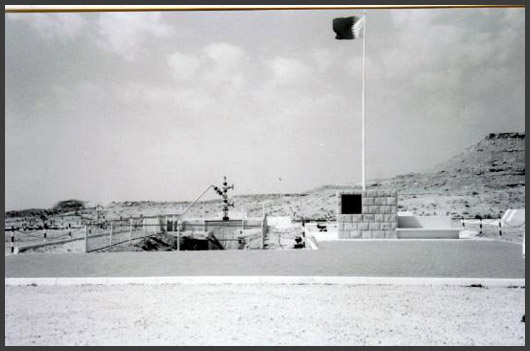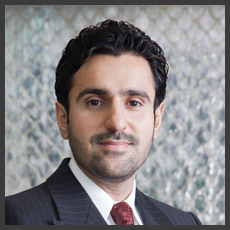Bahrain Energy Sector: transforming money into power
In July 2008 the energy price boom reached its peak when it hit $147 per barrel, before plummeting below $40 at the end of last year and recently stabilizing at around $70. In order to reach break-even, which means earning $1 after costs by selling oil, Bahrain needs an average price of $77 per barrel of oil.
Bahrain, although an oil exporting country, is not member of the Organization of Petroleum Exporting Countries.
But this does not mean that the ‘black gold’s’ contribution to the domestic economy is not important. In fact, the opposite is the case. Between 2004 and 2008 the Kingdom amassed $26.5 billion from oil exports, according to National Bank of Bahrain (NBB).
Bahrain has produced and exported 200,000 barrels per day since the beginning of the new millennium. Oil and gas contribute about 10–15 percent to Bahrain’s GDP.
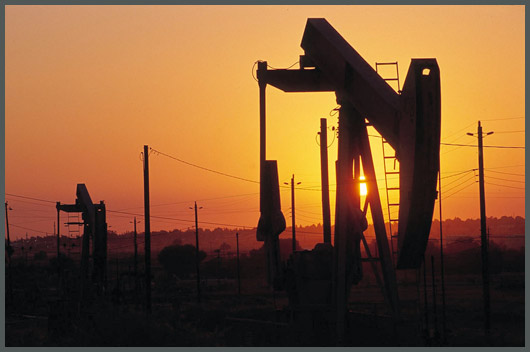
Abdulkarim Al-Sayed, CEO of Bahrain Petroleum Company (BAPCO), makes no secret that rising energy prices are in his and the Gulf Kingdom’s interest:
“The higher the better for Bahrain because we rely heavily on the oil that we sell,” he states.
In July 2008 the energy price boom reached its peak when it hit $147 per barrel, before plummeting below $40 at the end of last year and recently stabilizing at around $70. 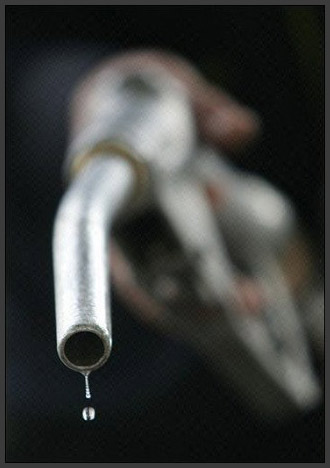
In order to reach break-even, which means earning $1 after costs by selling oil, Bahrain needs an average price of $77 per barrel.
This is much higher than the break-even price per barrel in Abu Dhabi ($23) and Kuwait ($33).
Nevertheless, with the capital Manama hosting some 400 plus banks and over 140 insurance operators, it is clear that the smallest GCC state is also a service-oriented state.
The financial sector contributes 27 per cent to the Kingdom’s GDP, more than any other GCC member state.
But financials are not that keen on rollercoaster price rallies as governments are.
“At this point we’re trying to avoid cyclical businesses.
Ahmed Al Khan , Head of Investments at GB Corp says. “The price of oil is high but if you make a lot of money it drops and the company goes out“, he adds.
“We’re looking for more service oriented sectors in this sector, where no matter what happens to the fluctuation in pricing, they are still servicing existing companies and we have constant revenue, organic growth.“
A blessing and a challenge
Bahrain has made significant progress in diversifying its economy. Ninety-five percent of Kuwait’s national budget, for example, is based upon revenues generated by the oil industry.
“In Bahrain, the income from the oil business accounts for over 70 per cent in the government’s income”, Al-Sayed knows.
His company, BAPCO, MarcoPolis’ green award winner, is wholly owned by the Government of Bahrain. It is engaged in the oil industry including exploration and prospecting for oil, drilling, production, refining, distribution of petroleum products and natural gas, sales, and exports of crude oil and refined products

Oil is a two-edged sword for the Arabian aristocracies. On the one hand, carbon reserves are still their major source of income, their lifebelt.
On the other hand, governments know too well that they have to build the foundation now for a diversified economy in the Gulf for future generations, i.e., for the infamous “post-oil era”.
With renewable energy sources (wind, sun, water, etc.) becoming in vogue worldwide, oil and gas also face new competition.

But space for wind generators or water turbines is limited on the main island of Bahrain which is smaller than New York City.
Preserving nature and landscape is high on the agenda in order to attract tourism. This is why Bahrain is expanding the carbon industry.
“At present our thought is to increase the refinery capacity from 250,000 to 350,000 barrels a day but this needs to be studied further,” BAPCO’s CEO Al-Sayed explains.
“If we increase our capacity here then we also need to increase the capacity of the pipeline that brings crude from Saudi Arabia and this is another project we are working on actively. And this could be between 300 and 400 million dollars.” he adds.
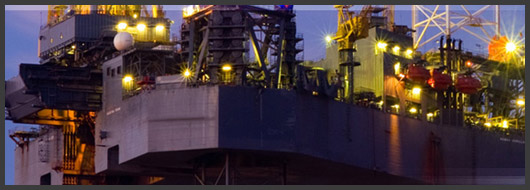
When oil and banks go hand in hand

The sums invested in the drilling, transporting, and refining industry do not seem to be affected so much by the financial crisis.
According to the
So far only 64 of 655 oil refinery stations are located on Arab soil.
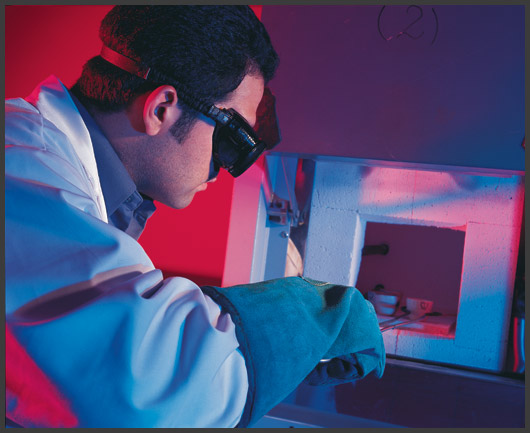
Where there is a demand for investments, banks are not far. Bahrain’s First Energy Bank, founded by Gulf Finance House (GFH) in February 2008, focuses solely on oil and gas investments.
First Energy Bank also finances research and development in the carbon industry as well as service projects in the energy sector such as safety on oil wells.
“I am not sure how revolutionary we are, but the First Energy Bank is definitely unique,” says its CEO Dr. Vahan Zanoyan . “The time for an energy-focused bank, investment, or financial institution is more than ripe.”
As its mother company, Gulf Finance House, the First Energy Bank operates solely in line with Islamic law (Sharia), which means loans, interest-accumulating bonds or short-selling are strictly banned from the bank’s operational portfolio.
But Elaf Bank’s CEO Dr. Jaroudi doubts that there can be a leader in a particular segment. “I don’t think there is any single player that can dominate the whole market,” he says.
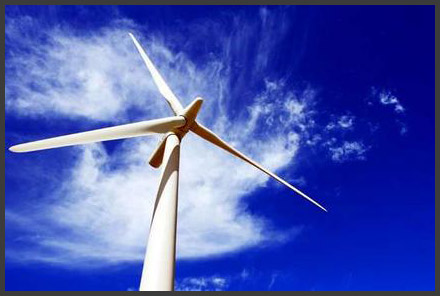
Asked where he sees the oil price going (a question which is nowadays more important than the price of bread), Dr. Zanoyan hesitates to give a “crystal-ball-like” answer: “I do not believe we are going back to 140, because part of the 140 story wasn’t just this type of fundamental dynamics, it also had a lot of speculative dynamics, political dynamics, and a lot of financial sector interference in the energy sector, which I don’t expect to come back as early as 2011-12.”
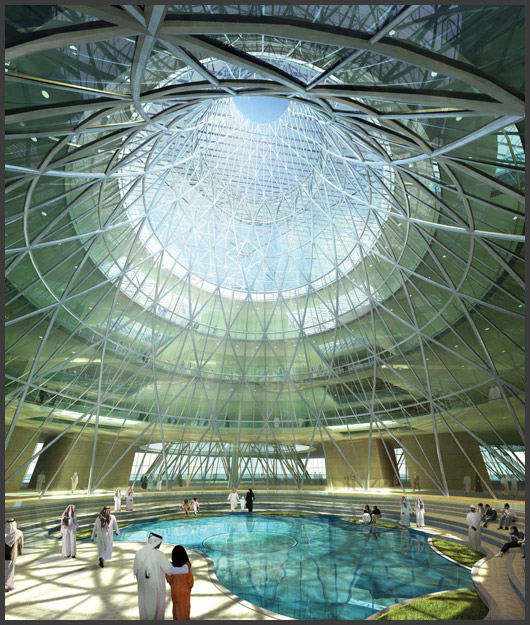
Meanwhile, sustainable investments are getting more and more attractive.
The emirate of Abu Dhabi, which is also the capital of the gulf state UAE, moved into the limelight with its ‘zero-carbon-emission’-city Masdar (Arabic for resource), which is planned as a home for 50,000 people. BNP Paribas Bahrain is providing project finance.
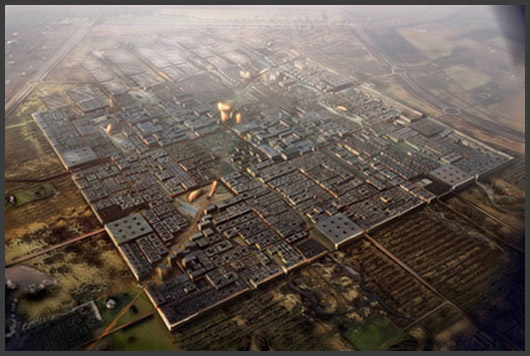
At the end of June 2009, Abu Dhabi has been selected to house the secretariat of the newly formed “International Renewable Energy Agency (IRENA)”.
Bahrain, and not Saudi Arabia, was the first country on the Arabian Peninsula where oil was discovered in commercial quantities.
It was in 1932 when the Standard Oil Company of California (Socal) installed the first oil well on the then British-ruled island. The well is located near the Jebel Dukhan, which, at a height of 134 m, is the highest point of the island. Visitors to Bahrain can learn more about Bahrain’s history in the Oil Museum.
One visitor wrote into the guest book that the museum “is small, but most interesting”, a statement which perfectly fits to the Kingdom of Bahrain as a whole.
